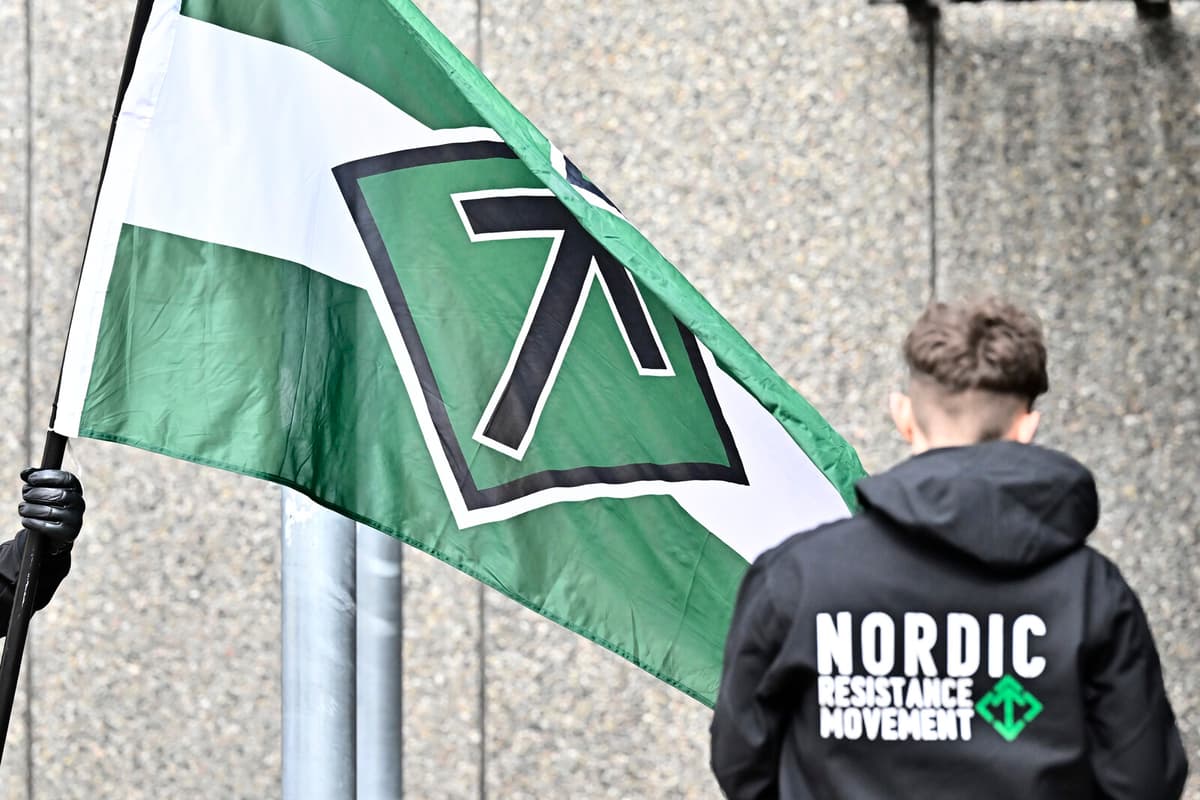Most alarms come in from relatives after the holiday weeks. It's only then that parents have had time to spend enough time with their children to notice the warning signals, explains Björn Berglund, who leads Fryshuset's exit program Exit.
When he started six years ago, most of those who tried to leave violent environments were in their 30s. Now they are in their late teens. A majority of the 20 or so people who get help to deradicalize have a nationalist ideology, while the others sympathize with violent Islamism.
Almost all of them have been radicalized on the internet and had advanced plans for serious violent acts.
Either they've carried out a school attack, or they've had the SWAT team at home who stopped them before they did it, says Björn Berglund.
The Same Problem – New Costume
In Sweden, online-based movements like 764 or similar "No lives matter" have led to several serious violent acts among young people in recent times.
At the same time, the debate that has followed the popular Netflix series "Adolescence", which takes off from incel movements, raises the question of how much we know about young people's internet use.
It's actually the same old problem as before – but in a new costume, according to Johan Oljeqvist, CEO of Fryshuset in Stockholm.
It's about seeking belonging, where you get seen. That hasn't changed. We meet the same people now as 30 years ago – it's exactly the same story. But now they're described as incels, back then they were described as skinheads.
Björn Berglund has a similar view: most of those he's in contact with have social problems and seek belonging in a group. The radical movements contribute, beyond the sense of community, also to painting another group – immigrants, women, or Western atheists – as responsible for their suffering.
These destructive groupings primarily fill a human need that these individuals have. The ideology always comes last, says Berglund.
A 14-year-old boy, with ties to a violent online sect, attacked a pensioner with a knife in Borås at the beginning of the year. He has in police interrogations described that he had a hard time getting friends and wanted to get attention in a group online. He also says that other group members pressured him to commit the knife attack.
Increased Risk with Online Forums
According to the latest annual report from the Expo foundation, which monitors right-wing extremism, there are three themes that recur in propaganda that attracts young people: promises of community, hyper-masculine ideals, and violence. Last year, more active, violent groups were noted than any other year since 2008, when Expo's data collection began. Many of the groups have formed online and "lure young boys into a world where violence is celebrated and encouraged. In several cases, it has led to real attacks", writes the foundation.
Before the internet's emergence, the groups that one sought community in could have a certain restraining effect among the most violent, speculates Johan Oljeqvist.
It often dampened the most destructive behavior. For it wasn't good for the group.
But in more anonymous online forums, the loyalty to the group that communities outside the virtual sphere provide is never created. Individual actions also don't lead to negative consequences for the group online.
So there you can egg on and push someone over the edge, says Oljeqvist.
Another factor that is deemed to increase the risk of lone-actor violence is the collapse of organized extreme right-wing groups. Expo has previously warned that smaller groups have increased as the neo-Nazi Nordic Resistance Movement (NRM) has lost strength.
Björn Berglund sees the knife murder of the chief physician Ing-Marie Wieselgren during the Almedalen Week as an example of what happens when someone who previously engaged in organized extreme right-wing groups shifts their activity to online forums.
The group itself has its own agenda. But when people become alone, then much worse things can happen, says he.
"Then You Risk Being Radicalized"
The mistake of staring oneself blind at which ideology the radicalized person advocates, rather than the psychological underlying problem, recognizes Johan Oljeqvist from the years when Swedish youths traveled to the terrorist sect IS's so-called caliphate to fight.
We tried to tell everyone that it's not Islam that lies behind these people's radicalization. For years, we made incorrect efforts to prevent people from leaving, for we looked in mosques and targeted the wrong people.
To detect and prevent radicalization among a relative, Johan Oljeqvist advises switching focus – often it's not the outspoken, but the quiet and isolated young person who needs help.
If society fails to create conditions for young people to be part of social contexts, then you risk being radicalized. For you'll seek out other truths, where you'll be accepted. And then it'll be with the group you find first.
The self-proclaimed internet sect 764 was founded by an American teenager in 2020 and has got its name from his home address in Stephenville, Texas.
The founder is currently serving an 80-year prison sentence for child pornography offenses.
Young boys and men in several countries have, in the movement's name, among other things, groomed, exploited, and blackmailed children sexually, carried out several unprovoked knife attacks and at least one murder. At least 50 chat groups have been or are active on the platforms Discord and Telegram, but members have hunted victims on everything from Minecraft and Roblox to forums for people with eating disorders and self-harm.
In the USA, the UK, Sweden, and Germany, identified 764 members have been sentenced to prison for murder, terrorist offenses, and sexual offenses against children.
No Lives Matter (NLM) is an ideological and violent subculture that has been connected to several knife attacks around the world, also in Sweden.
The group advocates extreme nihilism and encourages them to commit violent acts to destabilize society. Members glorify violence and use social media to spread manifestos and coordinate attacks, according to Expo.






